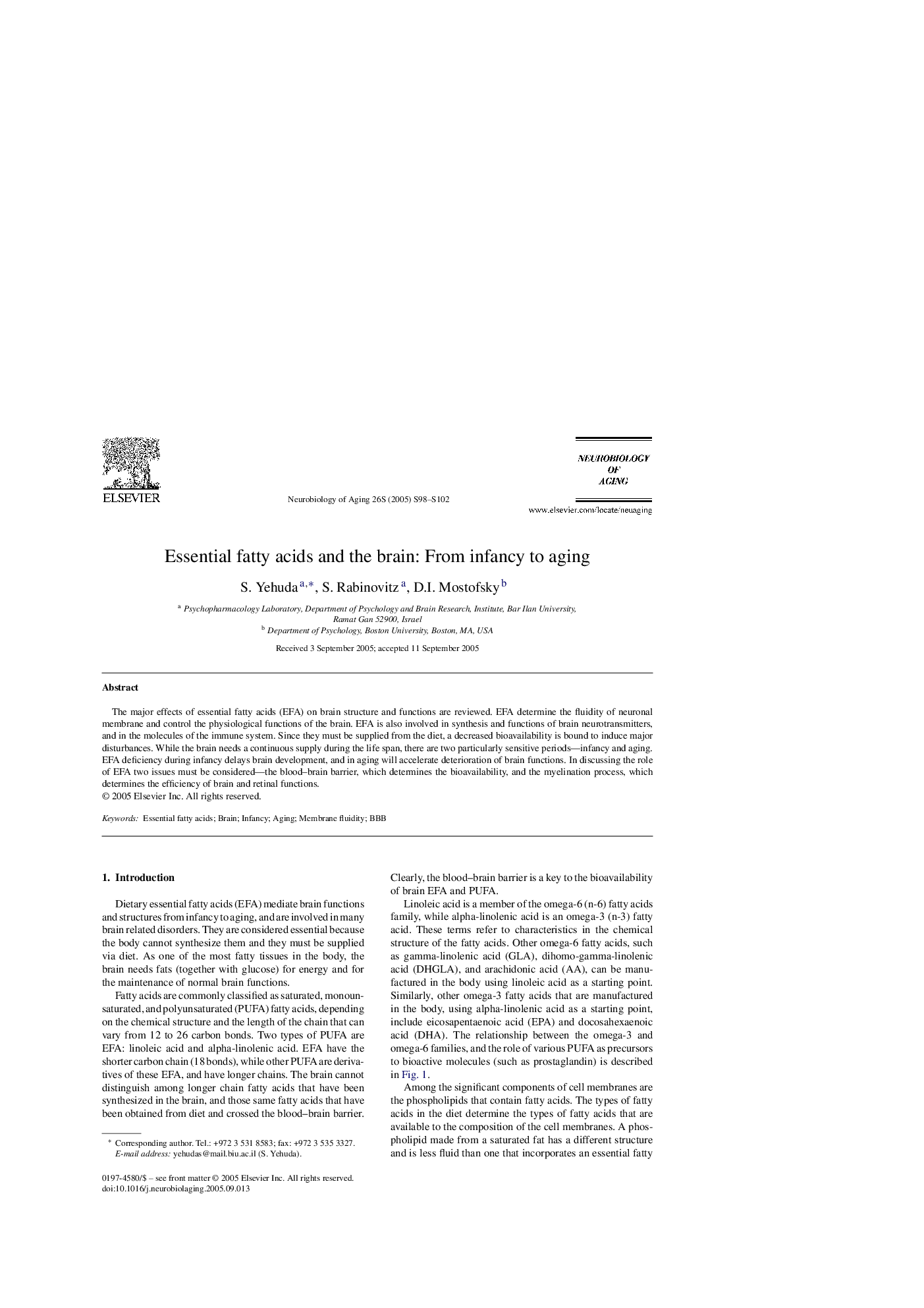| Article ID | Journal | Published Year | Pages | File Type |
|---|---|---|---|---|
| 9645205 | Neurobiology of Aging | 2005 | 5 Pages |
Abstract
The major effects of essential fatty acids (EFA) on brain structure and functions are reviewed. EFA determine the fluidity of neuronal membrane and control the physiological functions of the brain. EFA is also involved in synthesis and functions of brain neurotransmitters, and in the molecules of the immune system. Since they must be supplied from the diet, a decreased bioavailability is bound to induce major disturbances. While the brain needs a continuous supply during the life span, there are two particularly sensitive periods-infancy and aging. EFA deficiency during infancy delays brain development, and in aging will accelerate deterioration of brain functions. In discussing the role of EFA two issues must be considered-the blood-brain barrier, which determines the bioavailability, and the myelination process, which determines the efficiency of brain and retinal functions.
Related Topics
Life Sciences
Biochemistry, Genetics and Molecular Biology
Ageing
Authors
S. Yehuda, S. Rabinovitz, D.I. Mostofsky,
